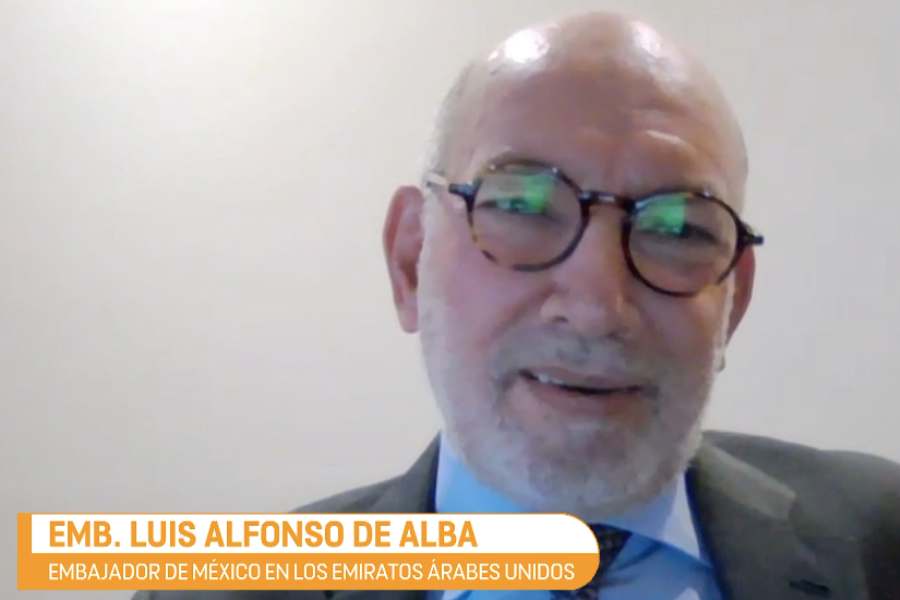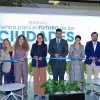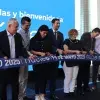Members of the Tec de Monterrey delegation that participated in the 28th meeting of the Conference of the Parties (COP) have shared the outcomes of this global climate change conference.
This took place through a hybrid panel in the Main Hall of the Rector’s Building, broadcast on the Live Tec site and moderated by Juan Pablo Murra, Rector for Higher Education at the Tec.
“We’re at a crucial moment in our global efforts, since 2023 provided compelling evidence of the destructive forces of climate change,” stressed Inés Sáenz, Vice President for Inclusion, Social impact, and Sustainability at the Tec.
“We continue to overestimate our ability to confront climate change and underestimate the destructive effects of these forces,” she added.
CONECTA presents the achievements and challenges identified during COP28 based on the participation of Mexico and the Tec community at the conference held in Dubai.
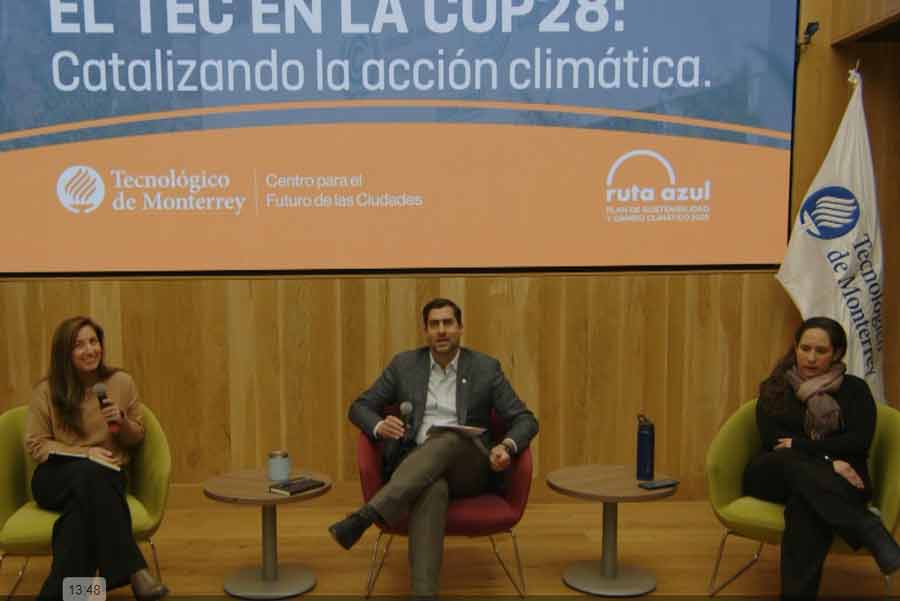
Universities, a meeting point for combating climate change
Participating on this panel in addition to the Tec delegation were Luis Alfonso de Alba, Ambassador of Mexico to the United Arab Emirates, as well as Tec executives and students.
Rector Murra expressed the importance of educational institutions, particularly universities, in leading efforts for the well-being of the communities in which they’re based.
“We want to continue to be a meeting point for the different stakeholders seeking to improve our society’s climate conditions,” said Murra.
According to Ambassador De Alba, formal negotiations during COP aren’t necessarily the element that makes this type of event successful.
“A broad and varied participation from different civil society stakeholders, along with the solutions present in the final documents, are the central components to be studied after each COP,” explained the ambassador.
“Previously, in COP meetings such as the one held in Spain, the presence of personal motives on the part of the delegates were important obstacles that impacted the perception of success of this annual meeting,” he added.
The diplomat declared this COP meeting an example of victory.
According to the ambassador, Mexico has been one of the key stakeholders in changing this panorama due to its approach to environmental diplomacy, evident since the Cancun conference.
What’s more, the diplomatic representative of Mexico said that the role of the host country’s presidency was an element to be discussed due to the view of the United Arab Emirates on the use of fossil fuels.
“Dubai’s presidency was able to recognize the mistake it made when it announced that it was going to double its use of fossil fuels, which was something it had to amend under pressure from the international community,” he said.
A shared vision and just transition for 2030 and 2050
For his part, Ambassador Miguel Ruiz Cabañas, who is Director of the Tec’s Sustainable Development Goals Initiative, agreed with De Alba when he said that the agreed plan for 2050 revolves around a drastic decrease in fossil fuel consumption.
“Since the Paris Agreement in 2015, the vision has been to keep the global temperature from rising by 1.5 degrees through reducing emissions by 43% by 2030, with net zero emissions by 2050,” he shared.
“Although these objectives depend to a certain extent on each country’s route, the COP makes decisions by consensus, without necessarily having unanimity, which can be affected by major emitters and oil-producing countries,” he added.
At this COP meeting, Ruiz reflected, the dominant theme in terms of agreements and negotiations revolved around the concept of a “global balance,” i.e., how the global community is going to achieve the desired results.
Thus, some of the most important and distinctive progress made on the decisions taken at COP28 included points such as tripling renewable energy capacity, as well as doubling the energy efficiency rate by 2030.
Likewise, it aims to accelerate net-zero energy systems, with low or zero carbon dioxide emissions before or around 2050.
“One of the milestone decisions from this year’s COP was to seek a transition away from using fossil fuels in energy systems in a just, orderly, and equitable manner so as to achieve net zero by 2050,” he pointed out.
“One of the milestone decisions from this year’s COP was to seek a transition away from using fossil fuels.” - Miguel Ruiz Cabañas
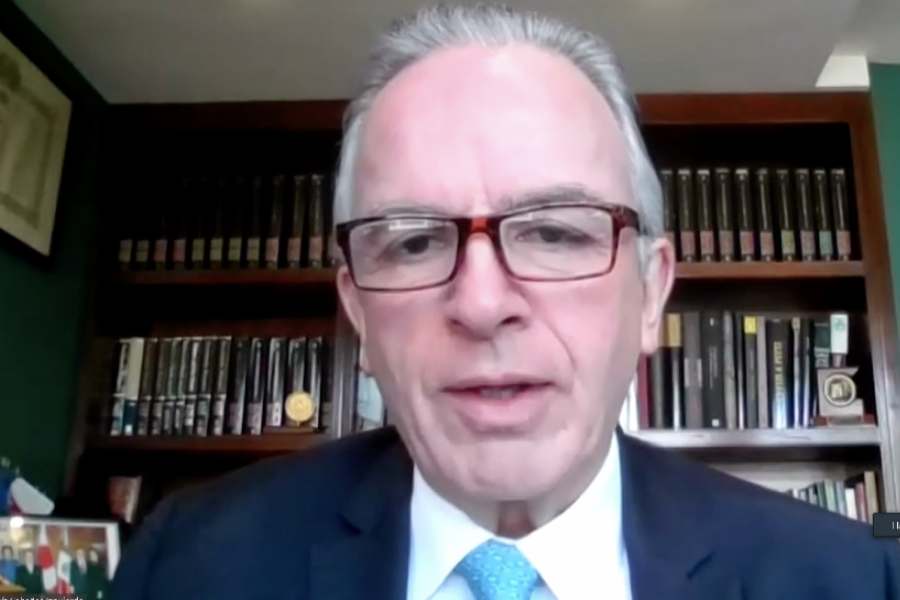
Looking back on the Tec’s contributions to COP28
Considering the crucial role that educational institutions have on the path to 2050, Murra and Sáenz highlighted the role of the Ruta Azul model, which aims to expand the culture of sustainability on and off campus.
Ruta Azul is the name of the Tec’s Sustainability and Climate Change Plan for 2025.
Paola Visconti, Ruta Azul’s Outreach Manager, said that Tec’s participation on different COP28 panels helped reaffirm the university’s efforts and rallied support from other stakeholders for climate action.
“This year’s aim was to create spaces for listening to stakeholders from other universities, oriented towards young people and Tec graduates, which allowed us to collaborate with institutions such as Yale, the University of Pennsylvania, and Cambridge, among others,” said Visconti.
“We shared a pavilion that allowed for face-to-face meetings with different people, something that we hadn’t seen in previous years and that allowed us to see what other universities were doing, particularly in our region,” she added.
For her part, Perla Martínez, Operations Manager of the Center for the Future of Cities, took the opportunity to highlight the role of global cities as a front line for climate change.
“Those of us in academia still have a lot to contribute and we must continue to lead the way during the transition process to 2050,” concluded Luis Alfonso.
For the third consecutive year, a delegation from Tec de Monterrey participated in the Conference of the Parties (COP) to the United Nations Framework Convention on Climate Change (UNFCCC), this time at its 28th meeting in Dubai.
Representatives from the Tec community attended to expand the dialogue from the perspective of educational institutions in the space known as the Higher Education Pavilion.
The Tec delegation included representatives from Ruta Azul, the Center for the Future of Cities, students, and Tec graduates.
The Conference of the Parties
From November 30 to December 12, 2023, COP 28 was held in Dubai, in the United Arab Emirates.
The Conference of the Parties (COP) is an annual conference held under the United Nations Framework Convention on Climate Change (UNFCCC), where the 196 nations plus the European Union that make up the Parties meet.
COP meets every year unless the Parties decide otherwise. The first meeting was held in Berlin, Germany, in March 1995.
There are two COPs that have established global agreements with emissions reduction targets:
- COP 3, in 1997: the Kyoto Protocol established the objective of reducing emissions in these countries by 5%.
- COP 21, in 2015: the Paris Agreement established limiting global temperature increase to no more than 2 °C by 2100.
With information from the government of Chile and the United Nations.
YOU WILL DEFINITELY BE INTERESTED IN READING:
